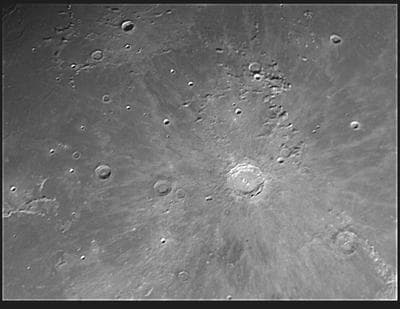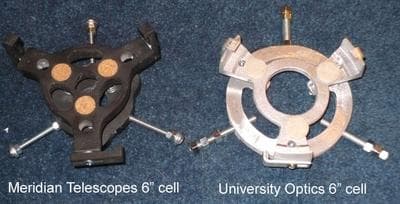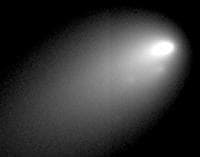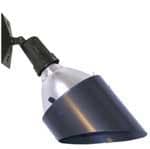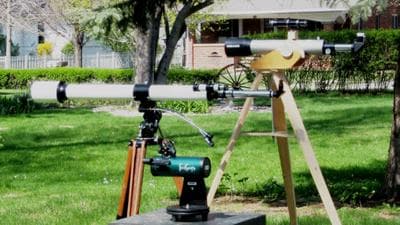
Eyes on the Sky
with David Fuller
with David Fuller
Astronomy Articles
Crazy, insane, I-shouldn't-do-that magnification
David Fuller — November 28, 2012This is NOT the thing one is supposed to do with a telescope. 40x to 50x are often the practical maximum magnifications, usually because of the unsteady atmosphere overhead. But the Moon is bright. The image doesn't get dim all that quickly. Plus, this was now a premium mirror - a .975 Strehl ratio. And it was fully-cooled, as it had been sitting outside for plenty of time to be at ambient temperature. So I said to myself, "Why not?"Mirror cells: University Optics and Meridian Telescopes
David Fuller — November 08, 2012Comparing and contrasting the benefits and features of a University Optics 6" mirror cell with a Meridian Telescopes mirror cell. What is good and bad about each one?Hergenrother: Going to pieces (literally)
David Fuller — November 05, 2012Comet Hergenrother is splitting apart," said Rachel Stevenson from NASA's Jet Propulsion Laboratory in Pasadena, California. "Using the National Optical Astronomy Observatory's Gemini North Telescope on top of Mauna Kea, Hawaii, we have resolved that the nucleus of the comet has separated into at least four distinct piecesRetrofitting, rather than replacing
David Fuller — November 04, 2012I got my December issue of Astronomy Magazine the other day. I was pleasantly surprised to read that it wasn't just talking about the problem and lamenting the loss of dark skies, it was actually offering practical tips on light pollution reduction, like how to talk to neighbors about the problem - tactfully, since "light at night" can be an emotional issue related to fear / security. It also addressed how to retrofit existing lighting, so one need not buy all new lights to improve those already in place.First Time Telescope Buyer's Guide
David Fuller — November 01, 2012A question often asked on beginner forums or on reddit astronomy boards is, "What telescope should I get?" or "What is the best beginner telescope?" There's a helpful - if older - article from 2010 by Sky and Telescope that covers some (at the time) sub-$100 telescopes, all of which are more than that now by $10 to $30. That's a good place to start. But sometimes the budget is more (or less!). So what to do from there? There are SO many choice today, it's hard to know what to get. Here are some recommendations I think may help.
